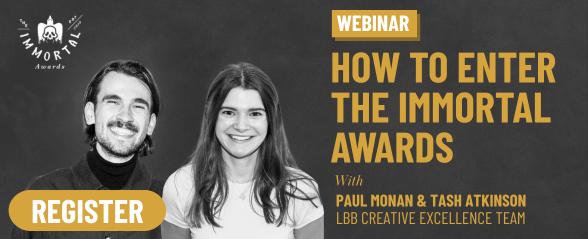
Adland - If We Know Better, Why Aren’t We Doing Better?

Many of us will have just returned from the Cannes Lions festival and I’m sure we all networked, schmoozed and partied our way through an exhausting week in the South of France. I’m also sure that we, as individuals and as an industry, played our part in contributing to the pollution of one of the most contaminated stretches of the Mediterranean ocean. Now, we’ve all read the articles that estimate the ocean currently contains an estimated 165 million tonnes of plastic and that by the year 2050 there’ll be more floating plastic trash than fish. We’ve seen the UN report that proposes over 1 million animal and plant species stand to go extinct if we continue to overfish, overpopulate and pollute this once-green earth. So, I won’t bore you with a repetition of them, but I will ask one favour - that we start asking questions.
I understand that there are always supposed setbacks against changing our behaviour. For me, as founder of production company Cult, I could argue that we’re at the end of the command chain - simply implementing a number of calls that have already been made. But if one production company, albeit at the end of the supply chain, can change its behaviour, who’s to say that effect won’t ripple back up the ladder? Who’s to say that this wouldn’t inspire a group of production companies to band together and, say, make industry wide change? Especially after a scorching week of consumption and wastage courtesy of the mammoth industry we work in.
So, why don’t we ask how we can impose an industry wide flat-rate carbon footprint offset? No one company would be cheaper or more expensive based on their environmental conscientiousness and it would answer the dilemma of not being able to turn down work on the basis of eco-concerns, but also understanding that said work can wreak havoc on our biosphere. Should production companies work together to determine a non-negotiable carbon footprint fee, easily done via a legitimate third party like Atmosfair, and applicable to any international work, it would make the playing field far more level.
Why don’t we ask who we are outside of our jobs - who we are as individual consumers? Consumers who can ask the questions needed to make brands and companies sit up and take notice. To paraphrase L.N. Smith, every dollar we choose to spend, or choose not to spend, is a vote we cast for the world we want to live in.
As an industry we’re good at questioning things - most of us are paid to do exactly that. So, why don’t we question whether this slippery slope to further climate instability can be rectified? If there’s more we can do, from ensuring the events we host are plastic free, to providing refillable bottles for our employees rather than accepting an office strewn with plastic one-use plastic bottles? Why don’t we question the fact that Adland representatives amongst the Extinction Rebellion group were forcibly removed from the festival this year despite their peaceful protest.
Last week brands were questioned about the sustainability of every part of their supply chain but the sustainability of advertising production wasn’t really under fire - with our atmospheric infrastructure just shy of total implosion - why the hell aren’t we questioning our role in this?
And, yes these questions can seem overwhelming, a Chinese finger trap to be caught in trying to get it all right, all the time. But we must choose to do something, rather than nothing at all; we must start where we can with what we have and work our way up. Let’s ask one question at a time, learn from our findings and then move on equipped with the knowledge to do better - it’s all to do with awareness. By speaking up we show brands and companies we care, that we are doing more than paying lip-service to the cause. For example, can we question the restaurants we take clients to - are they serving up sustainably caught fish or ethically, consciously reared meat. Can we question whether the lunches we comp need to contain meat at all? Or whether the inclusion of animal products, a practice that contributes 78% to the total agricultural emissions, is a non-necessity in this environmental moment?
I’m not trying to preach - I admit I definitely don’t get it right 100 per cent of the time, nor do I think anyone really can. But I am asking that we try to do incrementally better, compounding our knowledge and finding a way through this scary moment. No one’s expecting overnight transformation, not least when systems and processes are so ingrained in the industry we call home - but it is about taking the first step and then accelerating, preferably not in an SUV shipped from Europe to South Africa though - the Serpentine Road can wait.
So that’s my pitch. I would ask if there were any questions but there’s simply no time.
No, literally, there’s no time.
For more information about Constantin and Cult, please click here.












